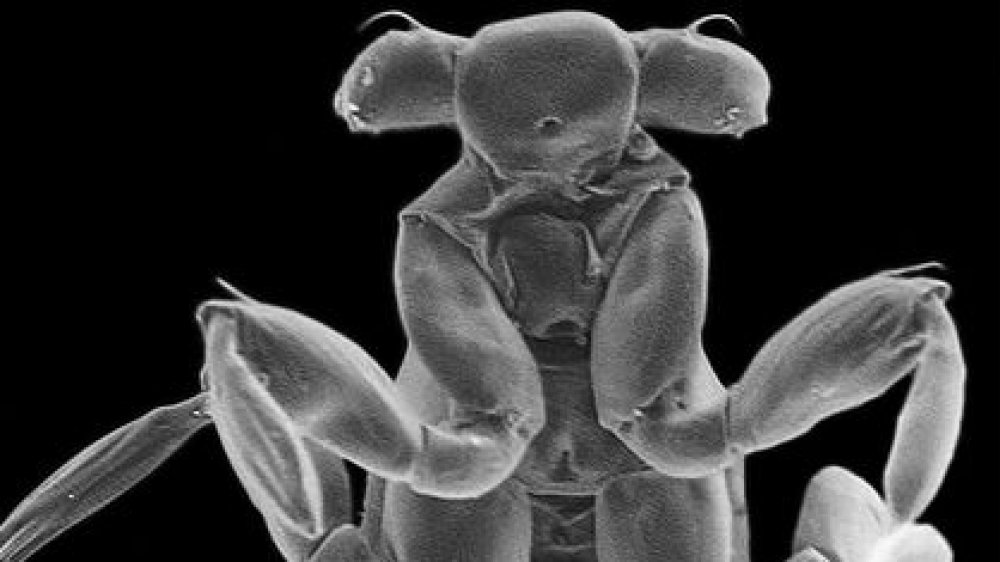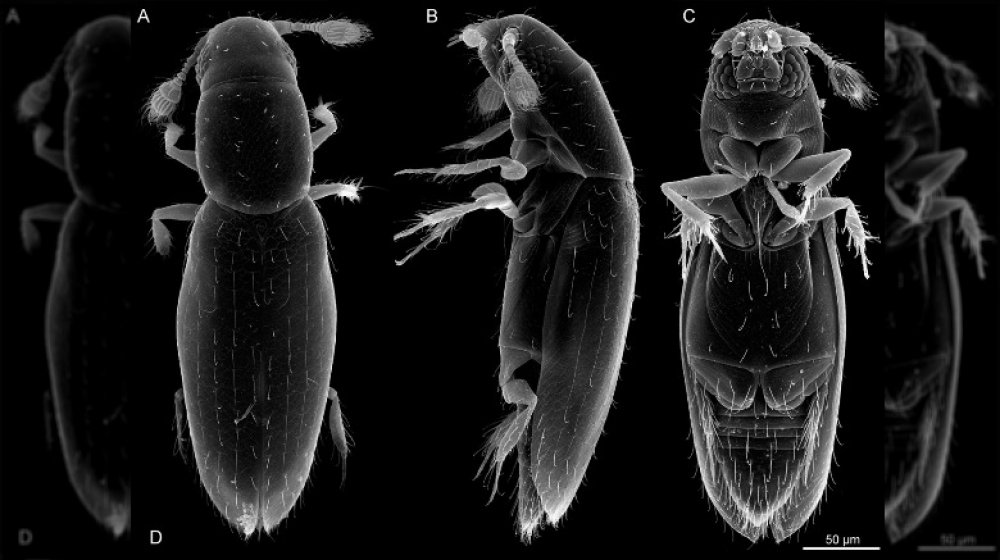The Smallest Insect In The World
Huge insects are terrifying. No one wants to be assailed by horse flies or mosquitoes the size of your fist. But in a way, tiny insects are even more terrifying. A mosquito the size of your fist ... well, at least you can see it coming. Midges, chiggers, fleas — you're not going to see those things until they're already feasting on your blood.
Fortunately, the world's smallest insect isn't a blood-sucker. It's an egg-sucker, so the only creatures that have to worry about it are other insects. According to the Huffington Post, Dicopomorpha echmepterygis — a type of fairyfly, or parasitic wasp — measures about .139 millimeters, which is less than 1/10th the size of a pinhead. Dicopomorpha echmepterygis depends on other insects' eggs for survival. Males of the species are smaller than females, and they're also blind and wingless. In fact they really only have one function: Making babies with female fairyflies just as they are emerging from the hosts' eggs.
The smallest non-parasitic insect
The smallest non-parasitic or free-living insect is Scydosella musawasensis, the featherwing beetle, which at .325 mm is just over twice the size of Dicopomorpha echmepterygis. Featherwing beetles have long (well, "long" compared to other small insects), oval-shaped bodies and segmented antennae. They live in damp places where there's a lot of decaying organic matter, like piles of leaves, fallen logs, and composting material. The name comes from their weirdly structured wings, which probably exist only so they can float around in the air like a dandelion. They're so tiny that they have to be measured using special software that can analyze images taken with a scanning electron microscope. Just to give you an idea about how tiny the featherwing beetle is, it's only about 1/6th the size of the common pharaoh ant, a small yellow species of ant commonly found in homes all over the world.
But relax, neither of these tiny bugs attack humans, so not only will you not see them coming, you also aren't likely to even know they're there at all.

